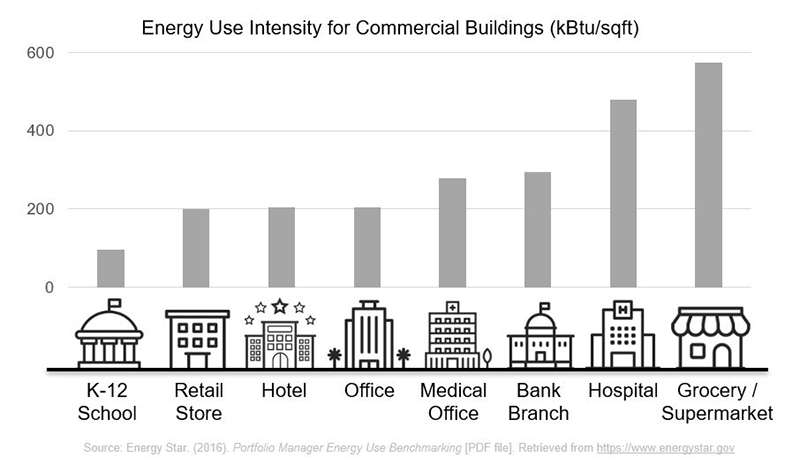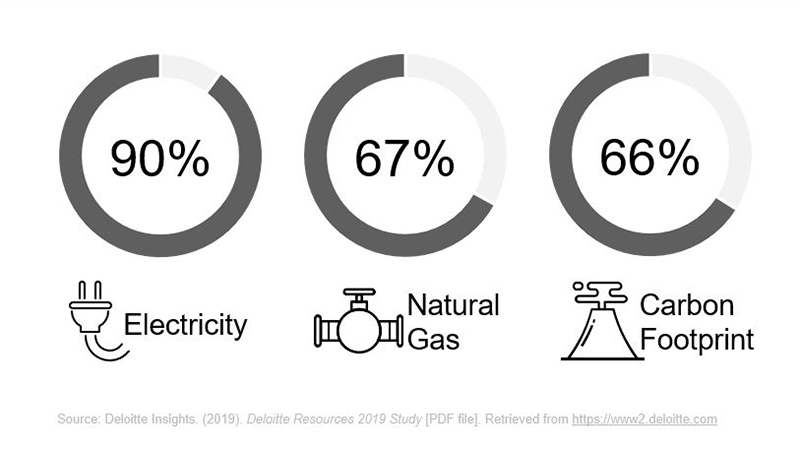Energy IQ: Why businesses need to unlock value with better energy management strategies
Think your business couldn't benefit from having an energy management strategy? Think again.
By Aytek Yuksel, Content Marketing Leader - Power Systems

Most successful companies have a marketing, product or supply chain strategy, but there is one more important but often overlooked area to consider when wanting to maximize profit: An energy management strategy. Today, a well-planned energy management strategy can position a company to take advantage of the recent trends shaping the energy markets.
"The days of considering energy costs as a given is long gone for most businesses," said Gino Butera, Vice President of Power Generation at Cummins. "A combination of five macro trends ranging from digitization and de-carbonization to electrification and de-regulation has created opportunities for businesses to be more pro-active with their energy costs."

According to a 2019 Deloitte study, 88% of businesses have changed their view of energy procurement from simply a cost to the business to an opportunity to create value. Cummins has identified three benefits or values to be unlocked by an effective energy management strategy.
No. 1: Improving the company’s financials
Energy bills (electricity, heating and transportation fuel) are one of the major expenses for many businesses of any size. If you are simply paying the energy bills without seeking the opportunities to lower your bills, you might be leaving money on the table.
When it comes to electricity and heating costs, there are opportunities ranging from demand response and demand charge management to combined heat and power for your business to lower costs. You can even create a competitive advantage for your business through an effective energy management strategy, depending upon your local cost of electricity. Hawaii's largest craft brewer has accomplished this and created its competitive edge with the ability to estimate the cost of electricity.
An effective energy management strategy would integrate the latest technologies in intelligent controls and microgrids into your company’s infrastructure, enabling your business to take advantage of financial opportunities.
No. 2: Protecting the core business from interruptions
Lives, money and reputation. In the case of certain healthcare facilities, interruptions in a business could have disastrous outcomes including putting lives at risk. Even in the least harmful case, an interruption caused by a power outage will still cost your business money in the form of lost business. Both instances could do irreversible damage to the company's reputation.
Even the most reliable power grids are at risk to fail. For example, electricity customers in the U.S experienced an average of over seven hours without power due to outages in 2017. In some states such as Maine and Florida, customers experienced an average of over 30 hours without power due to outages during the same year.
An effective energy management strategy would feature a diverse set of energy assets ranging from storage systems to emergency generators to minimize interruptions caused by power outages. A diversity of energy assets would increase the resiliency of your company's energy infrastructure instead of relying solely on the grid.
No. 3: Advancing the environmental sustainability efforts
Today, more businesses are not just talking about sustainability but are establishing environmental sustainability goals to keep themselves accountable. One might think this is a trend for large multinational corporations, but in fact increasing number of small businesses also have sustainability goals.
A business’ environmental footprint gets impacted by a variety of factors ranging from how its facilities are built to how its products are disposed, yet the use of energy gets the spotlight due to its significant impact on overall environmental sustainability.

An effective energy management strategy introduces new energy assets that produce less harmful pollutants to displace high-carbon sources such as coal. These new assets, including renewables and storage technologies, help businesses improve preservation of air, water and soil.
Whether it is improved financials, continuity to serve customers or reducing environmental impact, an effective energy management strategy has multi-faceted benefits for any business. Building an effective strategy requires a consideration of both the company’s future goals and current operating realities. Check out this article outlining how you can start building an effective energy management strategy for your business. If you are ready to take your energy strategy to the next steps, you can simply get in touch with an expert from Cummins to partner with you.
Sign up below for Energy IQ to periodically receive relevant insights and trends about energy management. To learn more about distributed generation solutions Cummins offers, visit our webpage.
Think your friends and colleagues would like this content? Share on LinkedIn and Facebook.
References:
1 Deloitte Insights (2019). Deloitte Resources 2019 Study [PDF file]. Retrieved from https://www2.deloitte.com
Author Profiles

Aytek Yuksel, Content Marketing Leader - Power Systems
Aytek is a marketing leader at Cummins, focusing on technology and thought leadership. Since joining in 2008, he has held various marketing roles and now shares insights on markets, technologies, and energy transition. Aytek lives in Minneapolis with his wife and two kids.
Related Tags